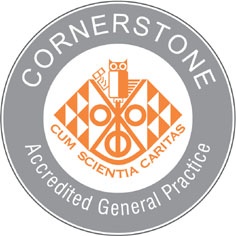
Waihopai Health Services commitment to education and quality improvement within the Practice – August 2025.
WHS has recently completed a Continuous Quality Improvement (CQI) initiative as part of our Cornerstone Accreditation, administered by The Royal New Zealand College of General Practitioners.
This year’s educational focus for WHS, was the “Review and Management of Patients with Type 2 diabetes and Pre-diabetes“. The initiative was implemented across the entire practice, with active involvement from our Doctors, Nurses, and Clinical Support teams.
Below, you will find each team’s findings and conclusions, along with our ongoing plan for continued quality improvement.
Clinical Support Team:
We are very pleased to have successfully registered 55% of our diabetic and prediabetic patients on the Patient Portal, enabling better monitoring of their health progress and supporting more proactive care.
We will continue to follow up with patients who previously declined registration, checking at each contact to see if they have reconsidered.
We found that once patients were contacted, many expressed interest in registering their family members as well, contributing to a positive overall portal uptake.
Nursing Team:
- Warm handovers to HIP
- Behavioural change techniques should be in conjunction with diet and exercise advice e.g. setting short- and long-term goals, identifying triggers
- Opportunistic screening, education and advice
- Developing strategies to use resources including staff in a more cost effective and efficient manner e.g. patient’s utilizing Accession portal
- Continue to address inequalities:
- Implementing the Meihana Model of consulting or the ‘Mihi Process’ to improve framework of health professional and patient relationship
- Utilising the ‘Te Whare Tapa Wha’ (House with four sides) model of delivery for optimum cultural safe care.
- Encourage SDHB Kaiawhina/Pacific Nurse as support person
- Increase the availability and of variety of resources available in different languages & utilize interpreters or whanau
- Improve knowledge and accessibility of community-based support avenues or groups
- Improve Tikanga at the practice e.g. using Te Reo Māori in conversation
- Maintaining annual cultural competency, learning from our patients in codesign
Doctor Team:
The type 2 diabetic patients that were identified as being eligible for funded SGLT2 inhibitor or GLP1 receptor agonist have been flagged in the notes for review by their GP, and this can be discussed with the patient at their next GP consultation.
In order to plan for ongoing quality improvement, we need to ensure that GPs are regularly re-evaluating our type 2 diabetic patients to assess their eligibility under special authority criteria for SGLT2 inhibitors and GLP1 receptor agonists. If Pharmac change the criteria in the future, this is also a good opportunity for the doctors to audit their patients again to see if they may be eligible under any new/updated criteria. Discussion with individual patients who are not eligible for funded diabetic medications as to whether the patient wishes to self-fund these should also be considered on a case by case basis.
